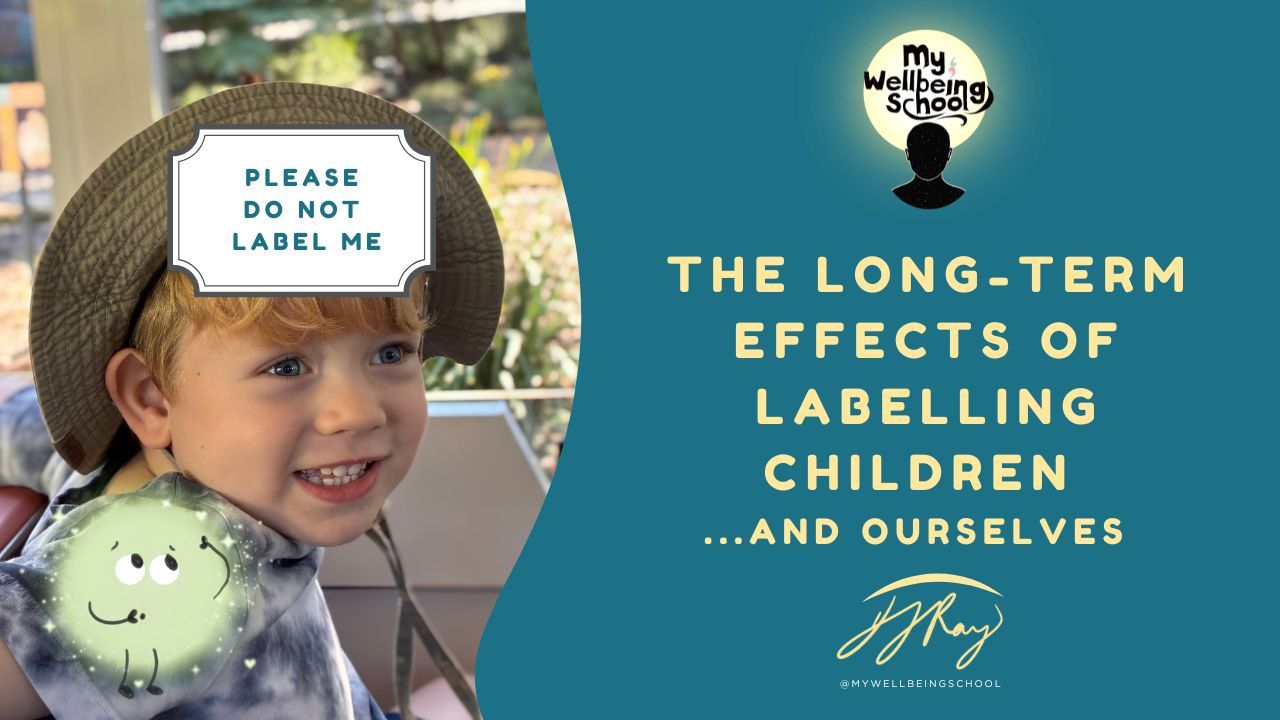Why Labels Matter: How the Words We Use Shape a Child’s Behaviour and Identity

Has your child ever had a label slapped on their forehead?
Naughty. Cheeky. Sporty. Geeky. Disruptive. Popular.
The list goes on and on.
Labels are such an interesting area to explore, especially in early childhood. Think about yourself growing up—did the labels you were given help you or hinder you? Did you grow into them, or spend years trying to break free? Were they even true—or were they just self-fulfilling prophecies?
Honestly, I think it’s the latter. Especially in those formative early years, how children are described often becomes how they see themselves.
Research supports this.
In early childhood education, studies show that the expectations we place on children—through language, tone, and even subtle cues—can shape how they behave and how they see themselves. This is known as the Pygmalion effect or self-fulfilling prophecy. If a child is repeatedly told they’re "trouble," they often start to believe it—and then behave in ways that reinforce that belief.
Even as adults, we do this to ourselves. We say, “I’m just a stressed person,” and in doing so, we tie our identity to that stress. Rather than seeing stress as something we’re experiencing, we make it part of who we are. And from that point on, it feels like it controls us.
The same is true for our children. When we label them—especially in front of them—we risk planting a seed that takes root in their self-concept.
And yes, I do mean even when they’re watching TV and seem completely zoned out. This is one of the most hypnotic brain states they can be in. Their subconscious is wide open, taking in everything around them. We can literally hypnotise our children into believing certain traits about themselves without even realising it.
So let’s be mindful.
Speak about your child as if they’re always listening—because they probably are.
Celebrate the traits you love: their creativity, their curiosity, their kindness. And if you need to discuss behaviour that’s troubling or challenging, do it privately. Not in the car. Not in the next room. Not while they’re on their iPad. Save those conversations for when you're truly alone.
I love this analogy: If a tree falls in a forest, does it make a sound? Technically, no—it creates a vibration. Sound only exists when there are eardrums to receive and interpret that vibration. The same could be said for labels. They only become part of our children’s identity if they’re heard and repeated—by us, by others, by themselves.
And here’s the really tricky part: once we expect a behaviour, we often unintentionally coax it out. If we expect our child to be defiant, we might respond to them in a way that invites defiance. It becomes a cycle that’s hard to break.
Now, this doesn’t mean all labels are bad. Some are helpful. They give us insight into behaviour, into neurodivergence, into how our kids experience the world. They can help us access support and build understanding. But still—how we speak about those labels matters deeply.
So do yourself, and your child, a quiet, powerful favour:
Don’t label them. Not to their face. Not within earshot.
They’ve got a whole lifetime to figure out who they are. Let’s give them the space to decide what label—if any—they want to wear.

